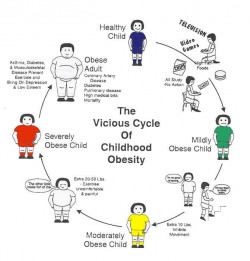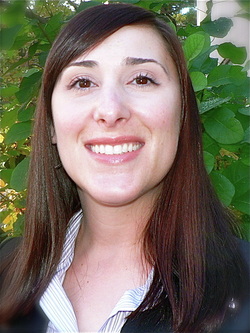I remember the first time my parents tried to explain to me that we were moving to a new country. I was only three years old, but I remember my father teaching me the pronunciation of “hello.” Close enough to the Romanian “alo,” I was able to repeat it incessantly as we waited to leave Europe.
It took us a little over two years to finalize our immigration papers and get through the Communist requirements that left my parents unemployed for so many months that our family lost everything but each other. In April of 1982, we arrived in Houston. The sheer joy that my family felt when debarking the plane continues to this day every time we speak of our tribulations to get to America. Little did I know I would have many more ahead of me.
Like many foreign students entering American society, I set foot in the public school system unable to speak any English besides “hello.” Yet, experiencing such an overwhelming obstacle was a privilege, because it framed my empathetic nature in low-socioeconomic classrooms. While I was not the only non-English speaking student in first grade, I was the only one who did not speak Spanish in the English as a Second Language classroom. Learning to use cognates from Romanian to Spanish and English helped me later comprehend how to teach language arts to English Language Learners. When comparing current educational settings to my public education, I consider myself lucky in several respects.
The public schools I attended encouraged me to think abstractly, taught me to analyze using higher level thinking skills, sponsored my individual talents, and engaged my multiple intelligences. From these elementary experiences, I took away not only mental dexterity, but also memories that have defined expectations of successful school environments. Via my personal experiences as an ESL student, I know public education succeeds when school culture and curricula lead Americans to pursue their highest goals.
My foremost goal in life has been continuous education, whether it consists of life-long learning or discovery through teaching others. Since my parents never had the opportunities of higher education while growing up in a communist country, they instilled the value of education in me as I progressed through school in America. I have developed a deep respect for learning throughout my life, realizing that an education can never be taken away. For this reason, I look back on one of my most prevalent hurdles in life with sincere gratitude, knowing that I have maximized its moral while educating others.
It took us a little over two years to finalize our immigration papers and get through the Communist requirements that left my parents unemployed for so many months that our family lost everything but each other. In April of 1982, we arrived in Houston. The sheer joy that my family felt when debarking the plane continues to this day every time we speak of our tribulations to get to America. Little did I know I would have many more ahead of me.
Like many foreign students entering American society, I set foot in the public school system unable to speak any English besides “hello.” Yet, experiencing such an overwhelming obstacle was a privilege, because it framed my empathetic nature in low-socioeconomic classrooms. While I was not the only non-English speaking student in first grade, I was the only one who did not speak Spanish in the English as a Second Language classroom. Learning to use cognates from Romanian to Spanish and English helped me later comprehend how to teach language arts to English Language Learners. When comparing current educational settings to my public education, I consider myself lucky in several respects.
The public schools I attended encouraged me to think abstractly, taught me to analyze using higher level thinking skills, sponsored my individual talents, and engaged my multiple intelligences. From these elementary experiences, I took away not only mental dexterity, but also memories that have defined expectations of successful school environments. Via my personal experiences as an ESL student, I know public education succeeds when school culture and curricula lead Americans to pursue their highest goals.
My foremost goal in life has been continuous education, whether it consists of life-long learning or discovery through teaching others. Since my parents never had the opportunities of higher education while growing up in a communist country, they instilled the value of education in me as I progressed through school in America. I have developed a deep respect for learning throughout my life, realizing that an education can never be taken away. For this reason, I look back on one of my most prevalent hurdles in life with sincere gratitude, knowing that I have maximized its moral while educating others.



 RSS Feed
RSS Feed





